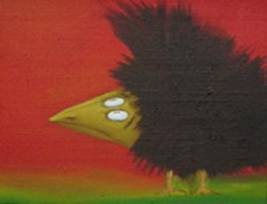compare with how he portrays himself? Do you think Catherine sees Reverend Drew clearly based on what she knows? Is she jumping to conclusions, or making use of her intuition and the hard truths she’s learned throughout her grueling years on the job?
10. At one point, Catherine says, “I know the difference between mourning and grief”. What do you think she means by this? Do you agree that there’s a difference? How would you describe the reactions, so far, of Reverend Drew, Heather, and Katie to the terrible events they’re faced with-as mourning or grief?
11. By the time we get to the section narrated by Heather, we’ve seen her from both Reverend Drew’s and Catherine Benincasa’s points of view, and we’ve read excerpts from her books. How would you describe her? Do you agree with Drew that she’s “unflappably serene… an individual whose competence was manifest and whose sincerity was phosphorescent”, or do you agree with pathologist David Dennison’s take on her: “Angel of death. I’m telling you: That woman is as stable as a three-legged chair”?
12. Heather’s section begins with her description of her first encounter with an angel: she’s a young woman, lost in the depths of depression, and intends to commit suicide. How would you interpret this moment? What does it reveal about how she deals with the deaths of her parents? About how she sees the world?
13. Reverend Drew and Catherine Benincasa both provide graphic descriptions of crimes and crime scenes-the Haywards’ and others-but Heather’s memories of the violence between her parents is particularly grim. How do you react to reading these passages?
14. Ending the novel in Katie Hayward’s voice is a provocative choice. What do you think of it? You’ve now seen her from the points of view of Reverend Drew, Catherine, and Heather-how would you describe her? Does she seem like a typical teenager? To borrow Catherine’s distinction, is Katie grieving or in mourning?
15. At one point during a conversation with Katie, Reverend Drew says, “it was one good thing to come out of that awful Sunday night: We were all striving to be better people. To be kind. To be gentler with one another”. Is this true in the case of the people in this novel? Can good come out of such violence, such painful loss? How does each of the four main characters respond? How does the town in general respond?
16. Re-read the interview between Katie Hayward and Emmet Walker. Think back to when you read it the first time, before you’d finished the book. Did anything give you pause? Is there anything in Katie’s responses that reveals what we later find out to be true?
17. The novel ends with a revelation. Did it surprise you? How does the author build suspense throughout the novel? Can you find moments of foreshadowing that hint at the ending?
18. Part I ends with Reverend Drew saying, “If there is a lesson to be learned from my fall… it is this: Believe no one. Trust no one. Assume no one really knows anything that matters at all. Because, alas, we don’t. All of our stories are suspect”. Do you think all the narrators’ stories-Reverend Drew, Catherine, Heather, Katie-are suspect? Is one of them more believable, more reliable, than the others?
19. Pay particular attention to the minor characters: Ginny O’Brien, Emmet Walker, David Dennison, Amanda and Norman, Alice Hayward. What does each minor character reveal about the narrators? How does each move the story forward?
20. Reverend Drew remembers an intimate moment with Alice Hayward in which she asks him to “Remind me who I am”. How do you understand this need in Alice? What was she looking for in Reverend Drew? Do you think she got it?
21. Excerpts from Heather Laurent’s books are interspersed throughout the novel. Look closely at each excerpt and at what comes before and after. Discuss why you think these are included, and how they impact your reading based on where they appear. Is there a literal connection between what’s happening in the story and what’s happening in Heather Laurent’s books, or is the connection more nuanced? Does one excerpt stand out to you more than the others?
22. Chris Bohjalian’s readers know that his novels often address a significant social issue.
23. Angels are a recurring image and a major theme in
ABOUT THE AUTHOR

CHRIS BOHJALIAN is the author of twelve novels, including the
Visit him at www.chrisbohjalian.com.


